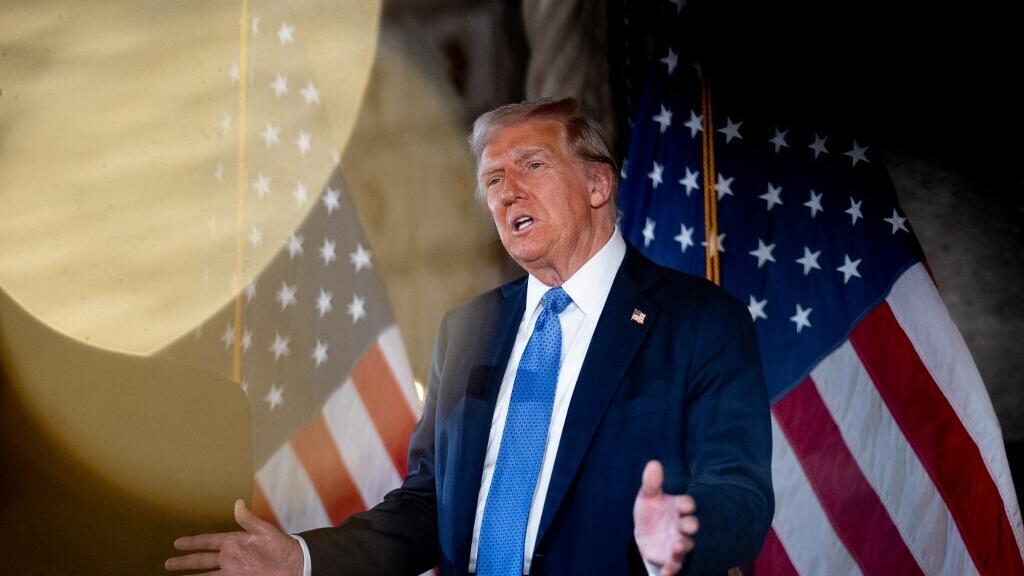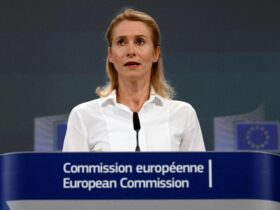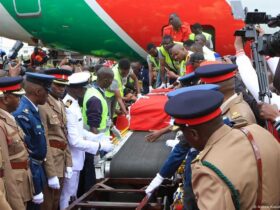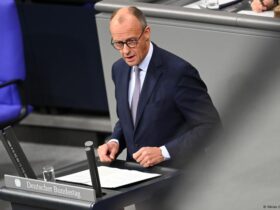Armenia is a secular but deeply religious state in the Caucasus that is proud to be the first country to adopt Christianity as a state religion in the year 301 AD.
Many are still in shock after a court on October 3 sentenced Apostolic Archbishop Mikael Ajapahyan to prison after finding him guilty of “making public calls for the purpose of seizing power.” Nearly two weeks later, Bishop Makarych Proshyan was put into pre-trial detention.
Proshyan has been accused of using official authority to compel people to attend meetings and of obstructing the exercise of electoral rights in both cases.
Before his arrest on October 15, authorities raided the Aragatsotn diocese, where Prousian serves as a primate, and the homes of its priests and staff. Twelve people were initially detained, most of them priests, but only three were charged.
The criminal proceedings are based on statements made by Aram Asatrian, a priest of the same diocese, during an interview with Armenia’s public TV network in September. Asatrian is one of the few priests who is openly critical of church leader Karekin II. Asatrian claimed that priests were pressured to attend 2021 opposition rallies.
The Church rejected the priest’s claim and assessed the raid and arrests as “a further manifestation of the systematic anti-Church campaign instigated by the authorities”.
The action comes amid rising tensions between the government and the church as the country prepares for 2026 parliamentary elections. The Church, which enjoys high levels of public support, has increasingly taken on an oppositional role, and clergy members have become more actively involved in politics.
Church-government rift
The Armenian Apostolic Church’s relations with the government of Prime Minister Nikol Pashinyan, who came to power in 2018, were initially neutral, but gradually deteriorated and became openly confrontational following Armenia’s defeat in the 2020 war with Azerbaijan over the Nagorno-Karabakh region.
A major strain on bilateral relations emerged when Karekin II, among others, demanded Pashinyan’s resignation after the war and blamed his leadership for the defeat.
Along with several opposition protests demanding Pashinyan’s resignation, the most significant pressure came from the Holy Struggle movement led by Archbishop Bagrat Galstanyan in 2024.
What began as a protest over border delimitation issues with Azerbaijan in the Tavush region of Armenia, where Galstanyan served as diocesan primate, the Holy Struggle movement evolved into large-scale anti-government protests. It also saw the direct political involvement of a priest, with Galstanyan attempting to become Prime Minister; However, it failed to gain momentum.
New tension between Armenia’s government and church
Renewed tensions between the church and the government flared up again in late May, when Pashinyan and members of his Civil Contract Party accused Karekin II, as well as other high-ranking clergy, of breaking their celibacy vows.
The government demanded Karekin II step down, saying that breaking his vow of celibacy made him ineligible for his position. Furthermore, despite the National Church Assembly having sole authority, Pashinyan has sought direct involvement in replacing the church head.
This is in contrast to his stance in 2018 after becoming prime minister, when he refused to interfere in “internal church affairs” in response to calls for Karekin II’s resignation from the group of defrocked and activist clergy known as New Armenia, New Catholicos.
Some analysts see Pashinyan’s current demands as an attempt to neutralize the church as an opposition force and install a more sympathetic church leader ahead of 2026 parliamentary elections.
“In times of crisis, [Armenian] The government has often tried to garner support by denigrating selected groups – be it former oligarchs, oligarchs, Russia, Karabakh [Armenian] Refugees, or the Church Now. “While generally successful, it may backfire this time: The latest polls show that public trust in the prime minister has declined as support for the church has increased,” Narek Sukiasyan, a visiting postdoctoral fellow at the University of Zurich, told DW.
alleged coup attempt
Lawyers for Azapahyan, who has pleaded not guilty, have vowed to appeal the court’s decision, which many observers consider politically motivated. Their assessment is based on the fact that authorities had previously seen no grounds to initiate a criminal case against Ajpahyan, who had publicly called for a coup in several interviews, which is a criminal offense in Armenia.
“The crime either exists or it does not; the Prosecutor’s Office cannot qualify in one case that no criminal element has been found, and in another case, if appropriate, put [the remarks] “Based on the criminal case,” rights lawyer Zara Hovhannisyan told DW.
Hovhannisyan pointed out that although there have been criminal cases involving other people with similar charges in the past, none have resulted in prison terms. He further argued that Ajapahyan could qualify as a political prisoner because of the “particularly severe approach” to his case.
The Prosecutor General’s Office cited Ajpahyan’s repeated calls for a coup in 2024 and 2025, arguing that the repetition shows that the statements “are not emotional or reckless expressions, but a conscious action.”
Additionally, the Prosecutor General’s Office noted that Ajpahyan’s statements “appear in a new light” amid arrests over an alleged coup attempt in June, despite Ajpahyan not being charged in that case.
In June authorities raided the homes of members of the Holy Struggle movement and arrested Archbishop Galstenyan, the movement’s leader, and others for alleged “terrorist attacks and coups”. Galstanian has pleaded not guilty to those charges.
Edited by: Rob Mudge






Leave a Reply